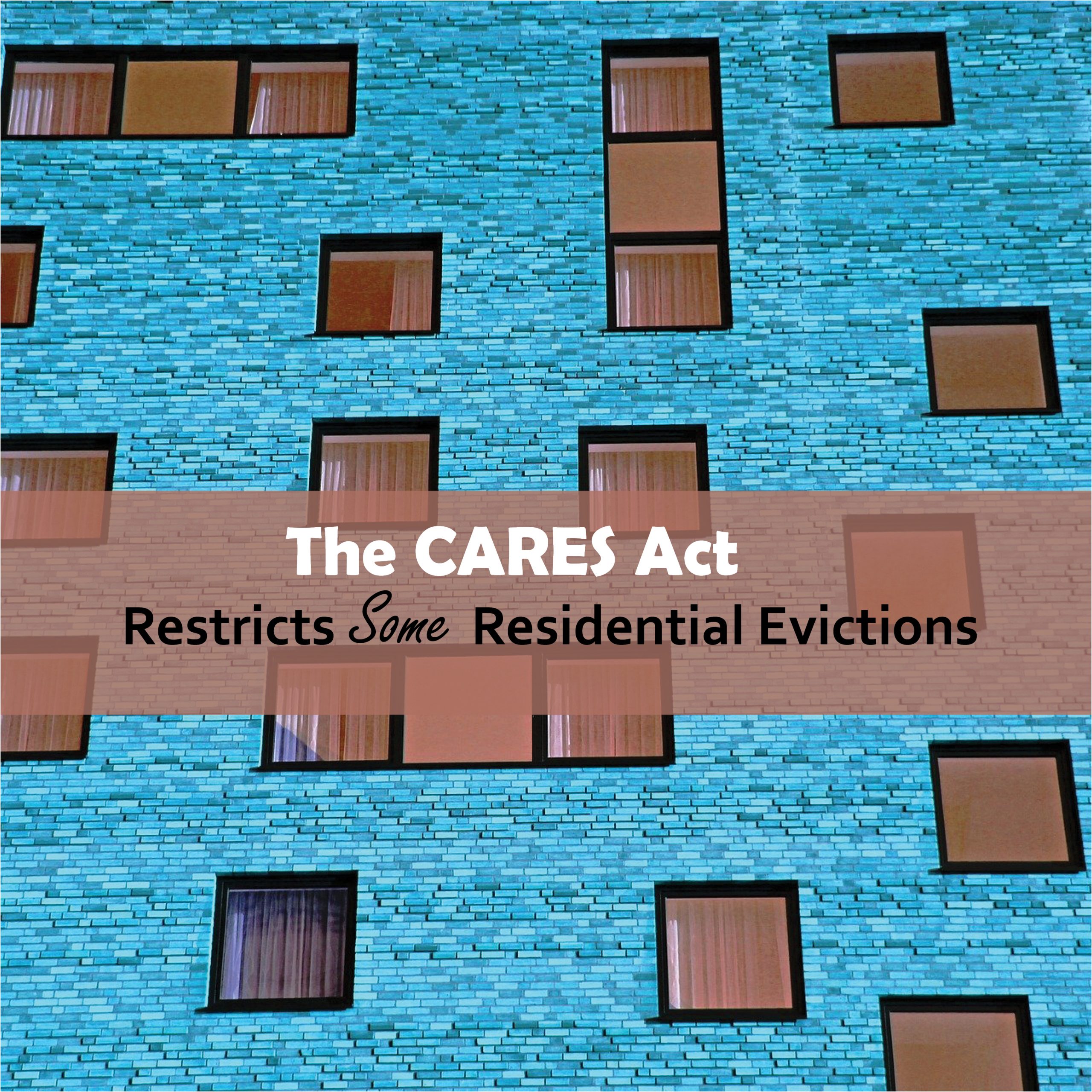The CARES Act Restricts Some Residential Evictions

It’s April 1, and you are anxiously waiting to learn whether your residential tenant will be able to pay April’s installment of rent. Unfortunately, even if your residential tenant does not pay the rent, the federal Coronavirus Aid, Relief, and Economic Security Act (“CARES Act”) restricts some landlords’ ability to evict residential tenants for non-payment of rent, under certain circumstances.
On March 27, 2020, President Trump signed into law the CARES Act in order to provide various forms of relief to those impacted by the novel coronavirus, or COVID-19. Sections 4022-4024 of the CARES Act provide a temporary moratorium (meaning a temporary prohibition) on foreclosure and eviction actions in certain circumstances. Section 4024 of the CARES Act is the focus of this blog post.
Section 4024(b) provides that, for 120 days after the enactment of the CARES Act (i.e., until July 25, 2020), a landlord of a “covered dwelling” may not file an eviction action for non-payment of rent or non-payment of other fees or charges. In addition, such landlords may not issue notices to vacate in connection with the non-payment of rent or other fees or charges until after the 120 day period, and such a notice, when properly issued, cannot require a tenant to vacate the rental unit less than 30 days after issuance of the notice. It is important to note that the eviction moratorium language does not address evictions for reasons other than the non-payment of rent, fees, or charges – so presumably, if local courts allow it, during the moratorium period a landlord can still evict tenants for other valid (non-monetary default) reasons.
Whether a landlord is prohibited from initiating evictions under this CARES Act provision depends on whether the landlord’s building is a “covered dwelling unit”. This phrase is defined in the CARES Act as a rental unit that is occupied by a tenant pursuant to a written or oral residential lease on property that:
- Is encumbered by a Federally backed mortgage loan – generally this will be any loan guaranteed, supplemented, or assisted by any office or agency of the Federal Government, like HUD, VA, USDA, Fannie Mae, or Freddie Mac; or
- Participates in the Rural Housing Voucher Program; or
- Participates in a covered housing program of the Violence Against Women Act, including:
- Public housing (42 U.S.C. § 1437d)
- Section 8 Housing Choice Voucher program (42 U.S.C. § 1437f)
- Section 8 project-based housing (42 U.S.C. § 1437f)
- Section 202 housing for the elderly (12 U.S.C. § 1701q)
- Section 811 housing for people with disabilities (42 U.S.C. § 8013)
- Section 236 multifamily rental housing (12 U.S.C. § 1715z–1)
- Section 221(d)(3) Below Market Interest Rate (BMIR) housing (12 U.S.C. § 17151(d))
- HOME (42 U.S.C. § 12741 et seq.)
- Housing Opportunities for Persons with AIDS (HOPWA) (42 U.S.C. § 12901, et seq.)
- McKinney-Vento Act homelessness programs (42 U.S.C. § 11360, et seq.)
There is good news: if a landlord is subject to the above described restrictions, the landlord will also have the right to request mortgage forbearance under either Section 4022 or 4023 of the CARES Act.
If you are a residential landlord with questions regarding the impact of the CARES Act on your rental property, please contact your Graydon attorney and they can put you in touch with the right person to discuss those questions. You can also visit our Graydon COVID-19 Business Resource Page.
Media Contact
- office 513.629.2896
